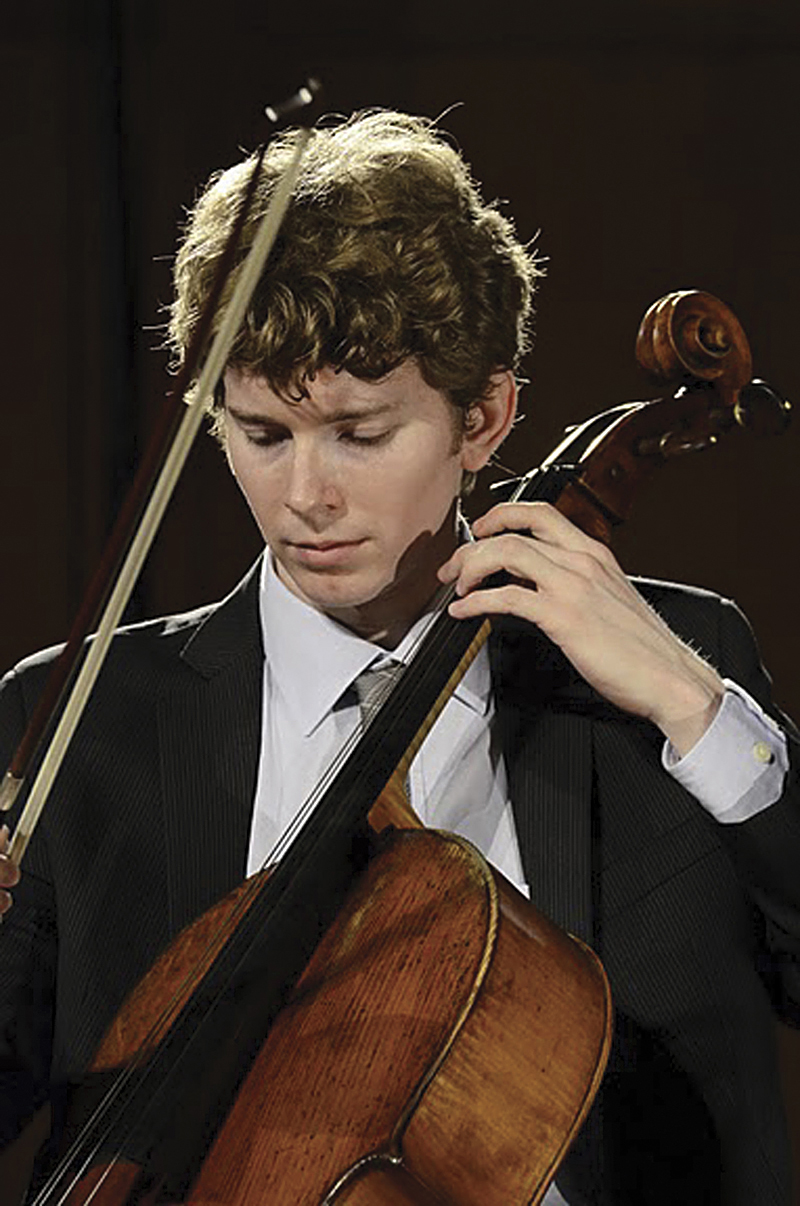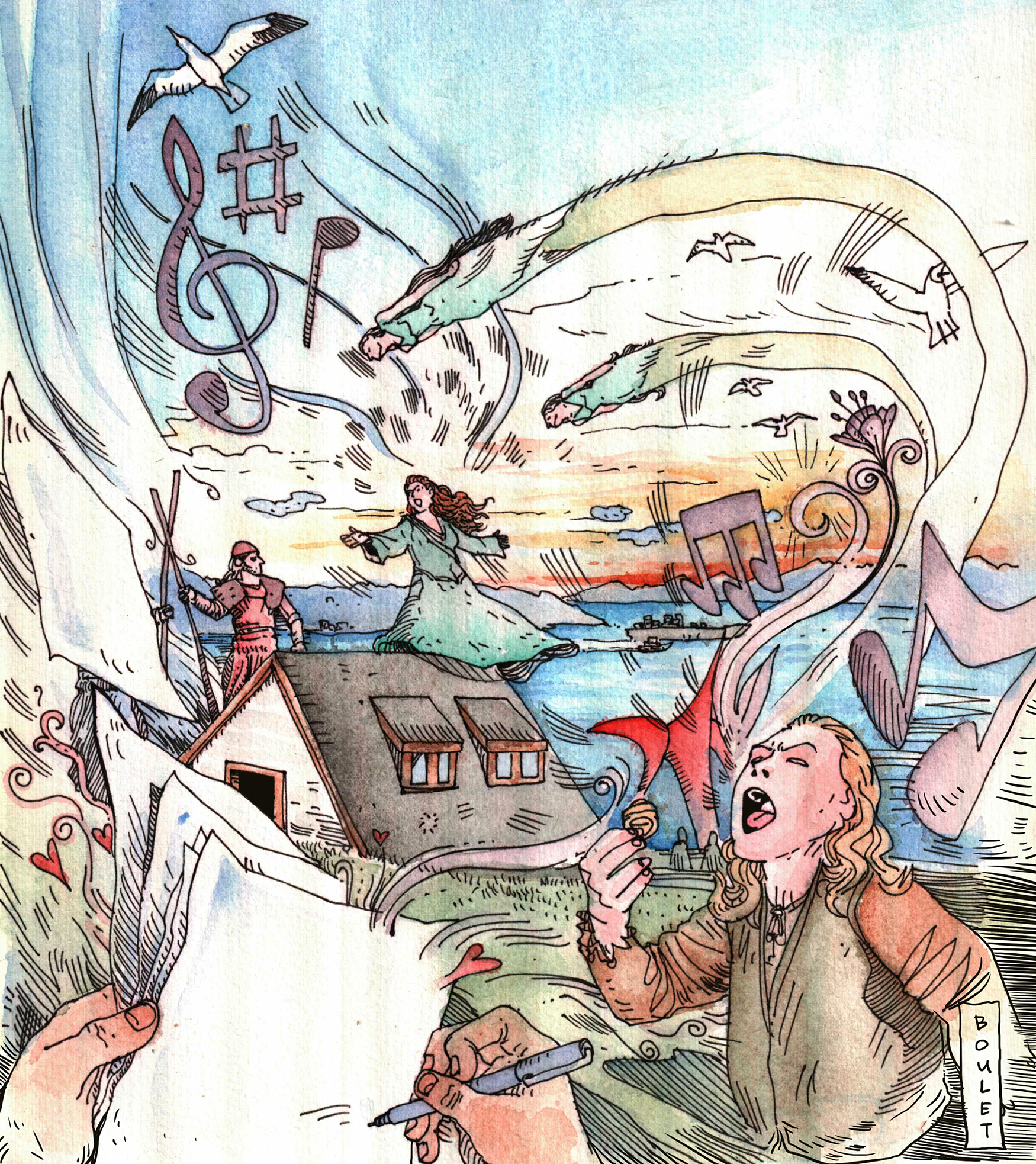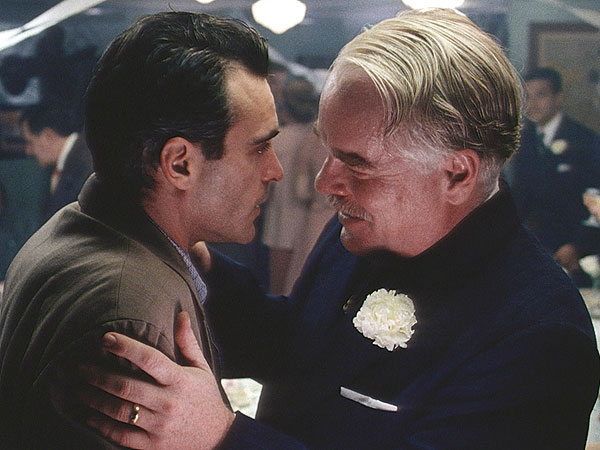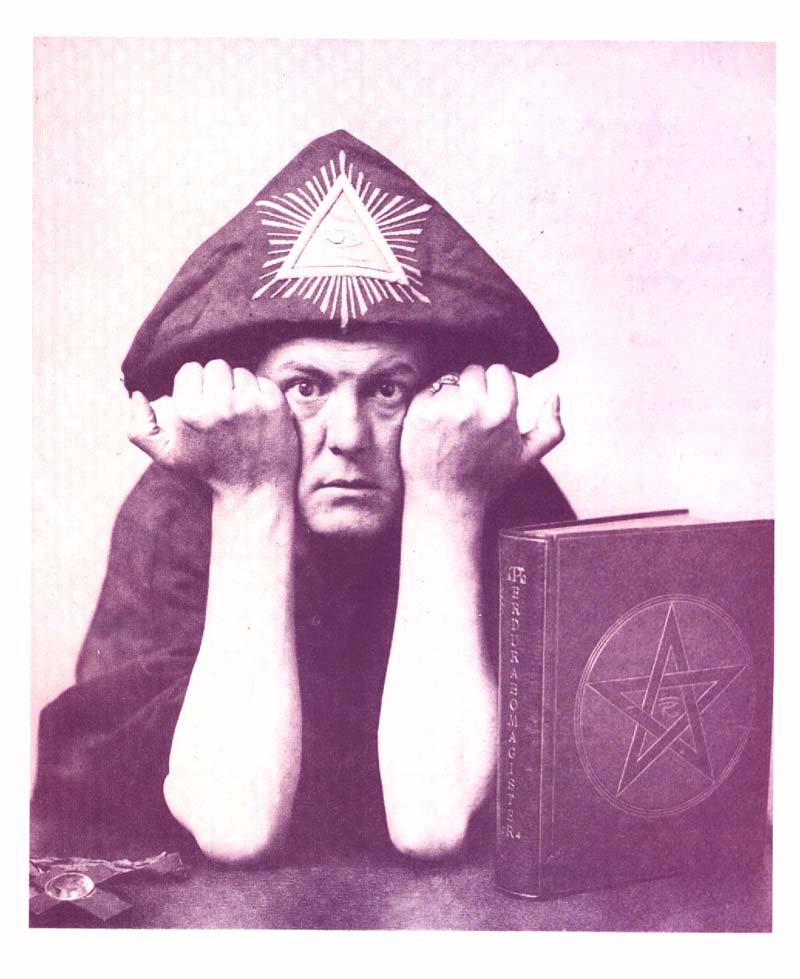FRIDAY 11/25
Comedy: Not-So-Black Friday
In a career lately revived by his popular WTF With Marc Maron podcasts (and Twitter, which he uses avidly), comedian Marc Maron has gradually turned away from the dark side. His jokes have grown less caustic and more humanist. Indeed, he sounds downright reflective when reached by phone at a Los Angeles Costco—a retail excursion that dovetails with today’s Black Friday shopping day following Thanksgiving. “As a culture,” he says, “there’s always something to be thankful for. In the midst of all the pain and chaos and insecurity and despair, sit down and make a list of what you’re grateful for, and it will protect you from complete despair and cynicism. Sometimes you just have to dig for it a little bit. I’m very excited right now that I was able to go to Costco and buy a seven-pack of nicotine lozenges for about half the price I would pay elsewhere. I’m grateful for my health. I’m grateful that the country hasn’t fallen into some sort of insane, chaotic Road Warrior situation. Yet.” But do we take the holiday for granted? Should there instead be a National Day of Ingratitude for Americans to celebrate? Maron replies, “Aren’t they already? Isn’t entitlement a certain kind of ingratitude? Isn’t every day Ungrateful Day in America? Because everybody feels they deserve to have what is completely out of their reach? Because they actually feel they’re on the path to the 1 percent?” And of those in the bottom 99 percent, at Occupy Seattle and elsewhere, he notes, “Obviously, the roots of Thanksgiving are dubious, if you want to think about it on a Howard Zinn level. You’re just basically celebrating the complete genocide or colonization of America. And that colonizing and the aggressive disenfranchising of the underclass still happens. It didn’t stop with the Indians.” Told how Issaquah-based Costco just got its Initiative 1183 approved, Maron sees a pattern: “Another example of how democracy works. People with the money can pay for their own initiatives. And it’s a nice healthy outlet for those who are disenfranchised into the exurbs and underwater on their mortgages. Now they can be underwater with booze from Costco.” The Neptune, 1303 N.E. 45th St., 877-784-4849, stgpresents.org. $19. 9 p.m. BRIAN MILLER
Film: Five Little Indians
Though Jeanne Moreau is top-billed in The Bride Wore Black (1968), it takes a good 15 minutes to figure out who the hell the film is about. Two douchey bachelors, one about to wed, discuss their various female conquests the way hunters compare trophy animals. Then there’s the wedding, which Moreau’s enigmatic Julie crashes, and where the new husband experiences an abrupt change in marital fortune. Adapting the crime novel by Cornell Woolrich, François Truffaut proceeds through two murders before, in flashback, Julie’s exact mission is explained. Her five targets grant Moreau a chance to play five different roles, since each is an imposter seeking to get close to the intended. She is by turns a schoolteacher, a tramp, an artist’s model, and so forth. You can’t say that Bride is a particularly personal film for Truffaut (or Moreau), but each chapter offers the chance to savor how each successive d-bag is lured and skewered, as it were, by an instrument of vengeance. At more than four decades’ distance, Bride satisfies by siding so firmly with Julie against these self-satisfied playboys (politician, artist, mobster, etc.). It’s very much a ’60s film, but French male sexism is obviously more entrenched, and unchanging, than the so-called sexual revolution. Julie is, in a way, an avatar of true love, a wronged woman determined to do right—but by killing for the sake of honor in a corrupt new world. (Through Thurs.) Northwest Film Forum, 1515 12th Ave., 329-1193, nwfilmforum.org. $6–$9. 7 & 9:15 p.m. BRIAN MILLER
Stage: A Victorian Update?
With two big new biographies just published on Charles Dickens, one wonders how ACT’s annual holiday staple, A Christmas Carol, might be written in 2011 instead of 1843. Victorian England was a grim place, with the Industrial Revolution creating a grossly stratified society not so different from our economic inequality today. Marley’s ghost, for instance, returns from the grave to warn against the mistreatment of workers being so cruelly exploited by nascent capitalism. In today’s terms, this would be like receiving regretful e-mails from the late Steve Jobs, instructing Apple to raise the salaries and cut the hours at the Foxconn plant in Shenzhen. (Maybe it would take Mike Daisey to write that particular update on the novel.) Ebenezer Scrooge, who’s taken on a Christmas tour by his old business partner, would be analogous to someone like Rupert Murdoch—a wrinkly old miser who, in the face of a phone-hacking scandal, must suddenly reconsider his ways. The poor clerk Bob Cratchit, an office drone who can’t afford food or coal to support his family, is something like the former WaMu underling whose bosses walked away with millions before the subprime mortgage catastrophe took down the bank and the entire American economy. Cratchit today would be camped out with Occupy Wall Street, huddled in the rain beneath a blue tarp or living in his car. And what of lame, pathetic Tiny Tim, whose love and optimism imbue Scrooge with Christmas spirit? Today, of course, we couldn’t use the term “cripple,” nor has Justin Bieber developed a limp. Instead we have to look to the tech sector for a disabled, possibly doomed figure of such pathos: Who doesn’t weep a tear for the tiny, orphaned Zune? (Through Dec. 24.) ACT Theatre, 700 Union St., 292-7676, acttheatre.org. $32–$42. 7 p.m. BRIAN MILLER
Stage: No Mouse in the House
If you grit your teeth every time you hear those cartoon mice screeching “Cinderellie!” in the Disney film version of Cinderella, give yourself a break and listen to some Rodgers and Hammerstein. The same pair who transformed the theatrical musical with works like Oklahoma! and South Pacific brought their skills to television as well. In fact, their 1957 TV production of Cinderella starred Julie Andrews as the beleaguered stepdaughter and future princess. The musical, with a beautiful score featuring songs like “A Minute Ago I Saw You” and “In My Own Little Corner,” has since been a big hit in two new telecasts and numerous stage productions. Alas, Julie isn’t in this musical (Jennifer Paz has the title role), but this much we can guarantee—no singing mice. (Through Dec. 31.) The 5th Avenue Theatre, 1308 Fifth Ave., 625-1900, 5thavenue.org. $29–$104. 8 p.m. SANDRA KURTZ
Film: Slime for the Holidays
Who you gonna call? I think we all know the answer: the top-grossing film of 1984, Ghostbusters! Bill Murray, Dan Aykroyd, Harold Ramis, and Sigourney Weaver star in the paranormal smash comedy, which inspired only one so-so sequel and a surprising number of video games. It was, of course, a simpler time back then, when special effects weren’t quite so seamless and the greatest threat facing New York City was the Stay Puft Marshmallow Man. The movie was a total star turn for Murray, playing the loosest and least professional academic on campus. Using Aykroyd as his uptight foil, with well-timed sideline zingers from the wonky Ramis (who co-wrote the script with Aykroyd), Murray is freed to embrace his inner, off-kilter leading man—he’s like Cary Grant on mescaline, utterly assured in everything he says, even when nothing he says makes the slightest bit of sense. (PG) Egyptian, 805 E. Pine St., 781-5755, landmarktheatres.com. $8.25. Midnight. (Repeats Sat.) BRIAN MILLER
SUNDAY 11/27
Classical: Bach Star
No one knows exactly when or for whom J.S. Bach wrote his six suites for solo cello, but he made the instrument do things it never had, pushing it to expressive heights that many consider still unequaled after 300 years. Neatly laid out in a format of six movements each, the suites cover a range of difficulty from tuneful pieces every student encounters on the way up to some of the most challenging works in the cello repertory. And Joshua Roman will play them all tonight—in two bouts, at 4 and 7:30 p.m., with a dinner break between. Roman came to Seattle in 2006 when hired as the first-chair cellist for the Seattle Symphony; though he moved on from that gig after two seasons, he stayed in town to curate Town Hall’s “TownMusic” series, headlining intrepid chamber-music recitals that have brought together classic repertory, new works, jazz, even indie rock. Anyone who thinks fire and elegance, precision and passion, are opposed concepts needs to hear Roman; few performers I know on any instrument can so compellingly combine technical gloss with visceral punch. Imagine a soprano who can somehow simultaneously sing like Renée Fleming and Janis Joplin, and you’ll have an idea. The question is just how he’ll harness these qualities for Bach’s intricate, poised stylized dance movements. No doubt he’ll come up with some marvelously imaginative approaches. Town Hall, 1119 Eighth Ave., townhallseattle.org. $10–$32. GAVIN BORCHERT








